Daryl Hooper of The Seeds Interview
The Seeds formed in Los Angeles, California in 1965 and soon after, took the world by storm. Their combination of surfy-psychedelia tinged with classical undertones was the perfect soundtrack for the Flower Power Movement that was gaining momentum as the Hippies fled to California for the Revolution.
The group, originally consisting of Sky Saxon (vocals and lyrics), Daryl Hooper (piano/organ and music writer/arranger), Jan Savage (guitars), and Rick Andridge (drums), have been cited as a major influence on hundreds of accomplished musicians and bands from Iggy Pop to The Ramones. Most band members have passed on, but Daryl Hooper has kept the flame going with his new incarnation of The Seeds that have been playing the old songs, writing new songs, and were even performing live shows up until that darned pandemic sucker-punched the world in the face. Daryl and I met up via “video chat” to lay down this interview. Lounging in front of his home lake somewhere in north-central California, surrounded by dozens of Canadian geese, and with a menagerie of other animals wandering in and out of frame and/or heard off to the side, Daryl shared stories from the heyday of The Seeds, talked about the elusive Pushin’ Too Hard documentary, and filled us in on the new band and what to expect from them in the coming months…
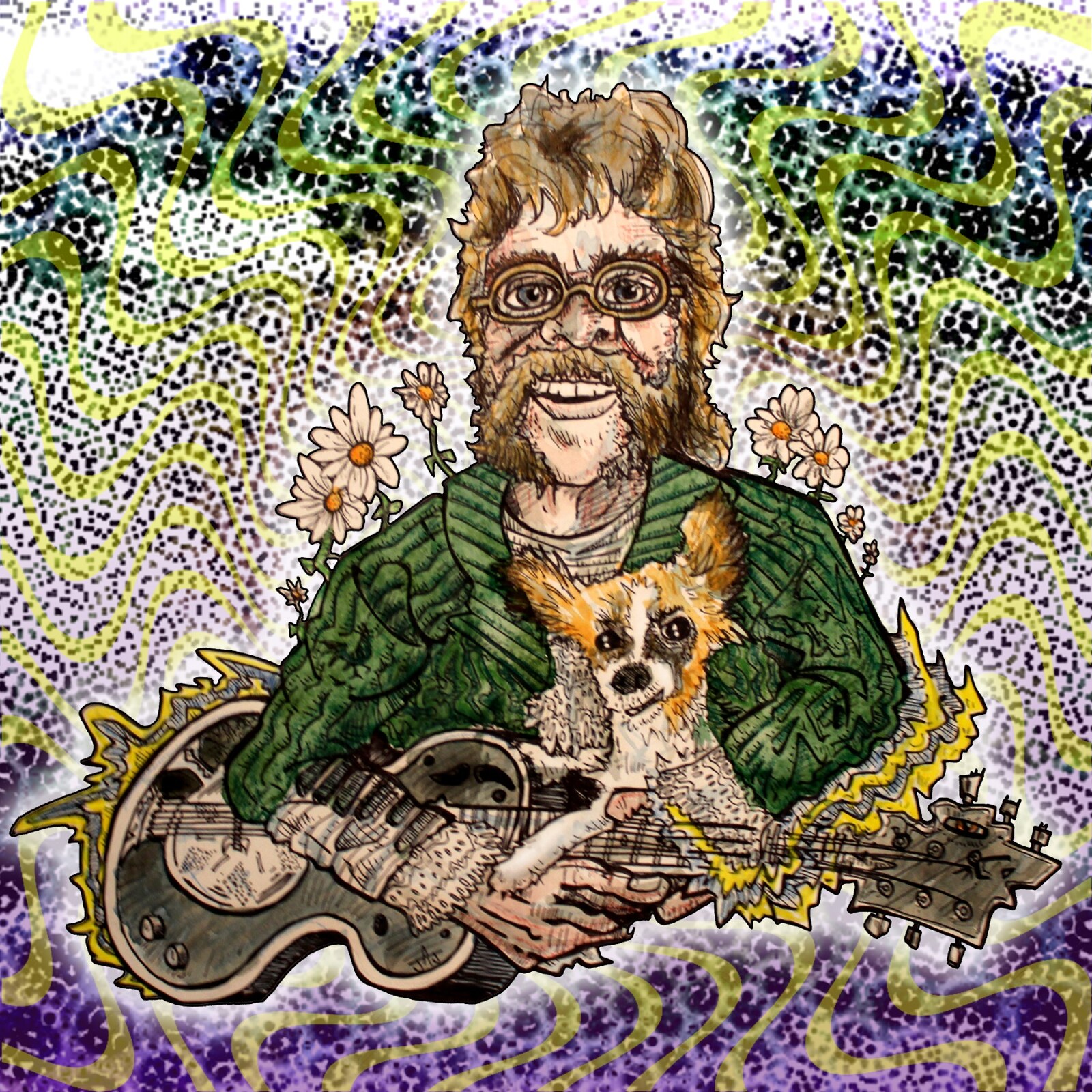
Nice to meet you Daryl. I appreciate you taking time out of your day to talk to me. We will just start off at the beginning – When and where did you grow up?
I grew up in Farmington, Michigan, which is kind of a suburb town of Detroit and it was kind of rural suburbia type thing we lived on like a half acre lot, you know along with the neighborhood. I was born in Detroit but moved there when I was in the sixth grade or so. And then I met my friend Rick [Andridge], who became the drummer of the Seeds. I met him in seventh grade and were friends for our whole entire lives. He passed away here a few years ago. But anyway, we came out to California from Michigan together right out of high school.
Do you come from a musical family or was that more your own thing?
My father was musical, although he didn’t play hardly at all when I was old enough to appreciate things but I heard stories. He played sax and clarinet. He played on a radio band back in the 1930s and it was called The Melody Makers. So, it’s a real typical music for that era and everything. But then he got married and my mother didn’t want him playing in bars and doing the usual things musicians have to do. So, he went to work in in a factory and became an auto worker like everybody in Detroit.
Was there any sort of local music scene or mostly just bar bands in that area?
No. Growing up like that with Rick and another good friend in High School we had a little group together called The Four Sharps, and we played on the weekend and stuff. It was either parties or a bar or something, you know, whatever. That was kind of the start of things.
Who were your musical influences around that time period?
Well, I think of course the beginning would have been Elvis and then discovering Jerry Lee Lewis. I think that was a big influence on my piano playing. I was a classically trained musician, so I knew a lot about music and nowadays I teach music still.
“We just clicked right away that first night.”
Were you in multiple bands before the Seeds?
No, not really. Just that one called The Four Sharps back in Michigan and when we moved out here, the Seeds were developed. We had a few different names at first and then I met Sky Saxon. We were literally starving, and Rick was almost going to go back to Michigan and Sky had got our number somehow from somebody and called up and said, “I need a keyboard player.” And I said, “Well, can you use a drummer too?” And he said “Yeah, okay.” And so, Rick and I met him at a club and then we met Jan [Savage] there and we played that night. It was like one of those things where you just say “What song do you know?”, “What song do you know?” and “Okay, I know that one” and we made up a set on the spot, went on and played and everything just jelled. We just clicked right away that first night. When the evening was over Sky said, “I’ve got some more gigs, do you want to do them?” And we said, “Sure, why not?” And that changed Rick’s mind. Within a week, he would have been gone back to Michigan. I was staying because I had a girlfriend which became my wife at the time.
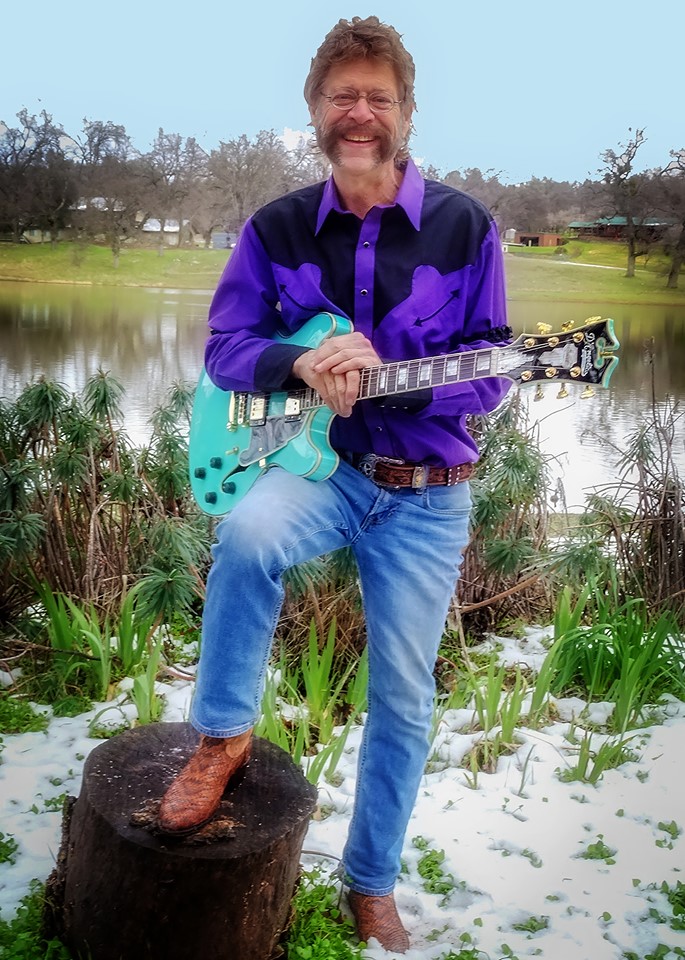
“You guys are seedy.”
The Seeds, of course, have a very unique sound. How would you describe your playing technique?
Well, you know, I think it is a kind of a combination of different influences. Being a classically trained musician, I think some of my influences in the music that I’ve put together have classical overtones to them. And then Jerry Lee Lewis and, of course, we all love The Beatles and The Rolling Stones. We were never a copy band but when we first got together, we were sure a cover band like every band has to be at first. But we started writing music. Myself and Sky would write songs and we’d be writing some things in between sets in some bar and he’d come up with an idea and I’d fill it in or I’d have an idea and he came up with some words and we would go right up on stage sometimes and perform the song. We played in a club, kind of an underground club up in Hollywood, called Bido Lido’s and we got a real following. There was a certain time in that phase where we had enough songs we said, “okay, so tonight is the night. No more cover tunes at all.” And it’s all our own music, you know, and then that was about the same time too that the name of the group became the Seeds. Before that we had some other names, The Earls of England, and I don’t know… a few different names that never quite stuck, you know? Yeah, I think a lot of bands go through that fumbling for a name and it was a disc jockey in Los Angeles that coined the name. He came to see us at some show and said, “You guys are seedy.” At first, we kind of took offense to it and then the more we thought about it and he says, “No, I mean you’re down to earth. You’ve got an earthy sound. You ought to call yourself the Seeds.” And then in a couple days we talked it over and this and this and why not? It stuck and there we are.
That’s great! I had no idea it was from “seedy”. I just assumed it was a reference to flower children and flower seeds starting the hippie movement or even the ubiquitous marijuana seeds.
That came later. All the Flower Power thing was after we had a couple hits behind us and a couple of albums and Sky came up with the Flower Power idea. Anyway, that kind of ran its phase or whatever.
I read that you would do the bass parts on a separate keyboard when you were performing live. Did you do this in the studio also or bring in a bass player?
No, in the studio we used a bass player. For most songs, we used this fella’ named Harvey Sharpe. He’s still playing, I believe, a little bit around the Hollywood area. Yeah, we used him on most sessions but when we were first together and performing, I just used the low keys on the Wurlitzer piano and then the Fender Rhodes Bass came out, a little short keyboard, and I switched over to that. And this was before The Doors were doing it, by the way.
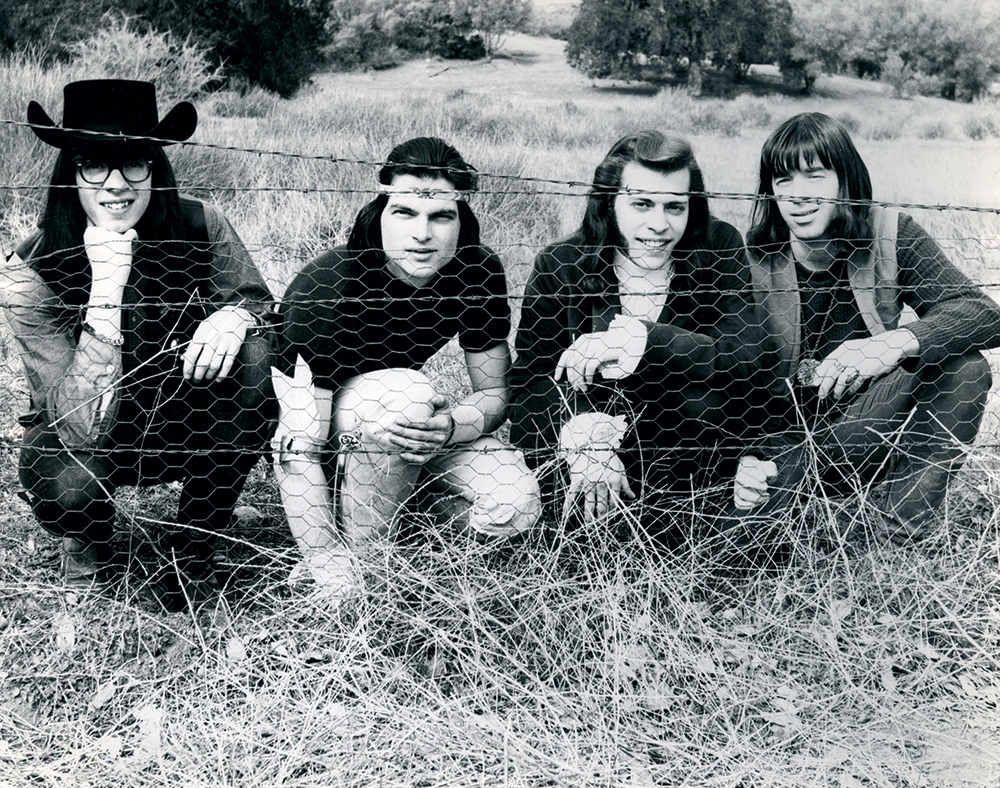
You had kind of brushed on this earlier but where did The Seeds play their first gig?
I believe it was a place called Turkey Joint West in Santa Monica, California.
Do you remember the first song you guys played when you hit the stage?
Couldn’t tell you that. And like I said, that would have been when we were doing cover tunes at that particular time when we had just got together.

How was the audience reaction?
Oh, very well. That was like an encouragement for all of us. You know, we just seemed to click right away as musicians together.
How did you end up getting signed to GNP crescendo?
Sky would be going around and we pooled our money together and we recorded, I believe, “Can’t Seem to Make You Mine” and “Daisy Mae”. A couple of tunes we recorded and then he took the record that we made around to different record companies, you know, and Crescendo was the one that ended up stepping up to the plate saying, “Yeah, we like what you got.” GNP Crescendo, especially at that time, was very jazz oriented. They had a couple of surf people, but the rock and roll that we were doing wasn’t really on their agenda. So, Gene Norman, the owner and producer of the whole company, I think he was maybe questionable about what he was getting into, but his son, Neil [Norman], who is running the record company at this day, and I think he influenced his dad, you know? He was probably 14 at the time or something, but he dug our music and said, “Hey Dad, you gotta sign these guys!” That kind of thing. So, I think he was an influence to his father and we signed on with them.
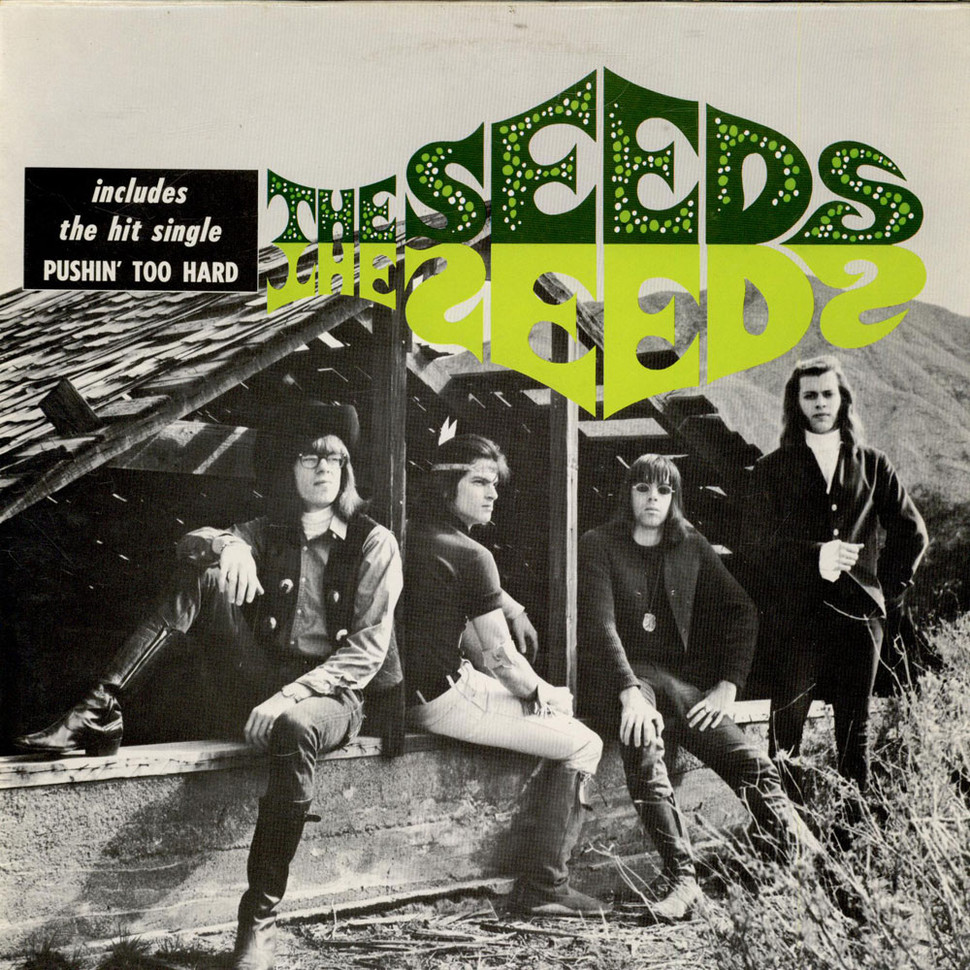
“We were the first or one of the first bands to put out an album of all of our own material.”
What’s the story behind the debut album? What can you tell us about when you guys were recording that?
Well, I think we were with the record company at that point and, you know, they just paid to send us into the studio. We had enough songs by that time that we had been performing in clubs and put the first album together and we were the first or one of the first bands to put out an album of all of our own material. Even The Beach Boys or the real early Beatles albums if you look at them, they’re not all written by McCartney and Lennon. They’ve got some other tunes thrown in. I think the cover of the album was very unique; especially for the day and age. It was black and white if you remember and we went out to an old farm area or something and found these old dilapidated farm implements and buildings and stuff and a friend of Jan’s shot some stills and that ended up being the cover of the album. It was fun.
What kind of equipment were you guys using on that first album?
I had my Wurlitzer piano and, like I said, we did bring in Harvey Sharpe for the bass. Jan Savage was playing a Fender Mustang through some sort of amplifier. He kept that for most the time. He got other guitars and things but he always kept that one. I don’t know… It’s hard to remember exactly. Later on, in our recordings we had Vox equipment and we were sponsored by Vox and we used the big Super-Beatle Amplifiers. Jan was given some Vox guitar that he did use although a lot of the recordings were done with that Mustang guitar. It had a certain sound and Jan kind of had a surf background and so a lot of his licks and stuff that he did was very kind of unique that it worked its way into our style of music. Yet it still had the little hint of surf music in some way. I think if you listen to some of his licks you might pick up on that. That was his background. So, that was his influence.
“It’s like one person influences the other and there is a circle that goes on”
Do you have any favorite tracks on that album?
There is a couple. “Nobody Spoil My Fun”. Sky wrote the lyrics to everything. I was the music writer and he was the lyricist and a lot of the songs I didn’t necessarily get credit for. I can say it very honestly to this day that most of the music was either arranged or written by me. I can’t write lyrics, so Sky always wrote the lyrics and he was pretty amazing. He would be at breakfast or something or he could be anywhere, in a restaurant or whatever. He started to get an idea and he would grab a napkin and start scribbling down things on the napkin and then as soon as we would get together and had an instrument or something and I’d start playing and all of a sudden the magic would start to happen and sometimes you don’t even know why. It’s like one person influences the other and there is a circle that goes on and there you go.
Were there any psychoactive substances involved when you guys were working on the album?
No, that came maybe by the second album or so. Not with myself or any other members of the group; we were really not into any drugs even pot at the time, but Sky was and that was really the downfall of the group. Later on, he just became more and more involved with pills and amphetamines and LSD. That was really the one, I think, that just did him in because all of his egotism and things that you might say are out on the fringe…by the time LSD had taken over him he was just really hard to grasp, hard to get ahold, you know? He was out there. It was a major demise of the group, really.
I’ve been trying to find the Seeds Documentary, “Pushin’ Too Hard”, and can’t seem to find it for purchase, rental, or download anywhere; only that it was touring theatres a few years back. Do you know what’s up with that?
All I get [from Crescendo] is, “Yeah, I’m working a deal with Netflix and blah, blah, blah.” And you know, it’s been a long time. I don’t know. I can’t answer why it travelled around the country quite a little bit. I was going to Q and A sessions after the movie and that’s what prompted me to put the New Seeds back together as I was getting so many people in the audience saying, “Oh, your music is so wonderful! We remember this and blah, blah, blah.” And it was not only the old fans that we’re thankful for and you kind of expected, but now the 20-somethings that had discovered this music and they’re out there in the audience asking me all the questions and know all about it. Some of them knew more than I do! It was very interesting. So, to answer your question about the movie, I have no idea… I hope it’s gonna come out maybe by next year or the end of this year, but I can’t say that, so I don’t know.
I’ll keep an eye out for it. I’ll send Crescendo some emails, I guess. See if they’ll respond or something [they haven’t!].
I was gonna show you this; this is the last CD that came out. This is from the movie. There’s a few old things on here that were in the movie. See, Sky Saxon was Ritchie Marsh before he met us and he was still kind of in that almost late 50s/early 60s frame of sort of doo-wop sort of thing in a way. You’d have to hear it. There’s at least one song on here called “They Say”and it’s Ritchie Marsh in 1963. So, he had done a few singles and had a couple of minor recognitions in the Los Angeles area before he met us. Like I say, that music was kind of fading away and the new rock was taking its place with all the influence of the Beatles, of course, Rolling Stones, so on and so forth.
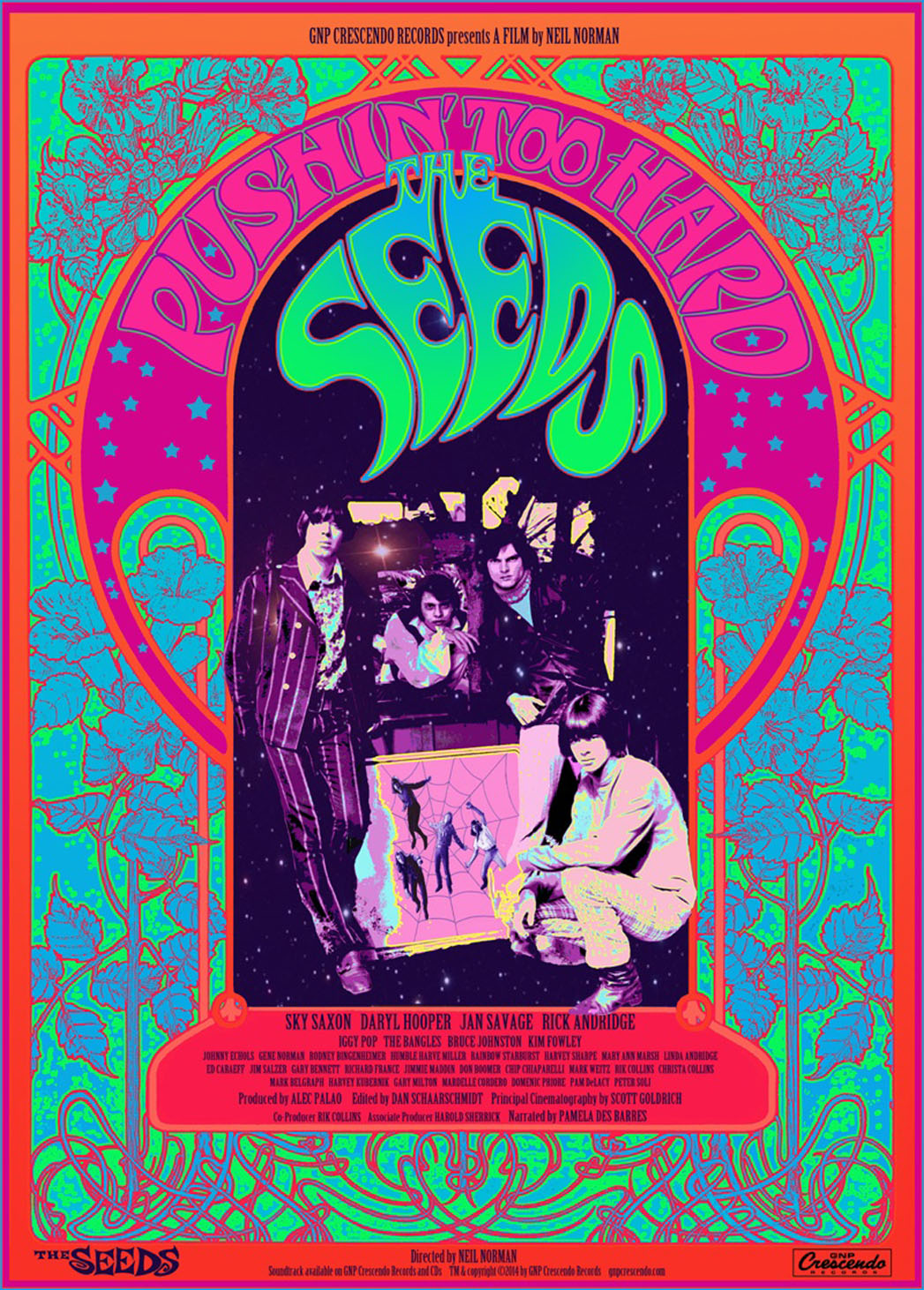
Yeah, it was a big turning point right there around the mid 60s.
Exactly. Yeah. So, there’s a combination of things here. These are all songs that were in the movie and one I might mention here too is, I don’t know if you’re familiar, we did a blues album called A Full Spoon of Seedy Blues and Muddy Waters was on the session. He wrote one of the songs [“Plain Spoken”] and he played harmonica on one of them. Great guy, really down to earth. Just one great guy. That’s all I can say, he was cool. And so, one of his songs is on this album here too. Most of them have been done in England by Ace Records, with the permission of Crescendo. All of the albums have been redone with the help of Alec Palao who is now my bass player in the New Seeds and he’s been nominated for a Grammy like seven times or something, you know, he’s written all the liner notes and things and all of the history. He’s a rock historian beyond belief. If somebody asks me a question and I can’t remember it or something about some recording session or whatever, I’ll say, “ask Alec!” and darned if he doesn’t know the answer. He’s a great guy. And then Paul Kopf is our lead singer. I met him through Alec and he was a friend of his and they’re doing some side stuff right now with a group that they made called Strangers in a Strange Land. They’ve got a couple new releases and they’re doing some really nice stuff.
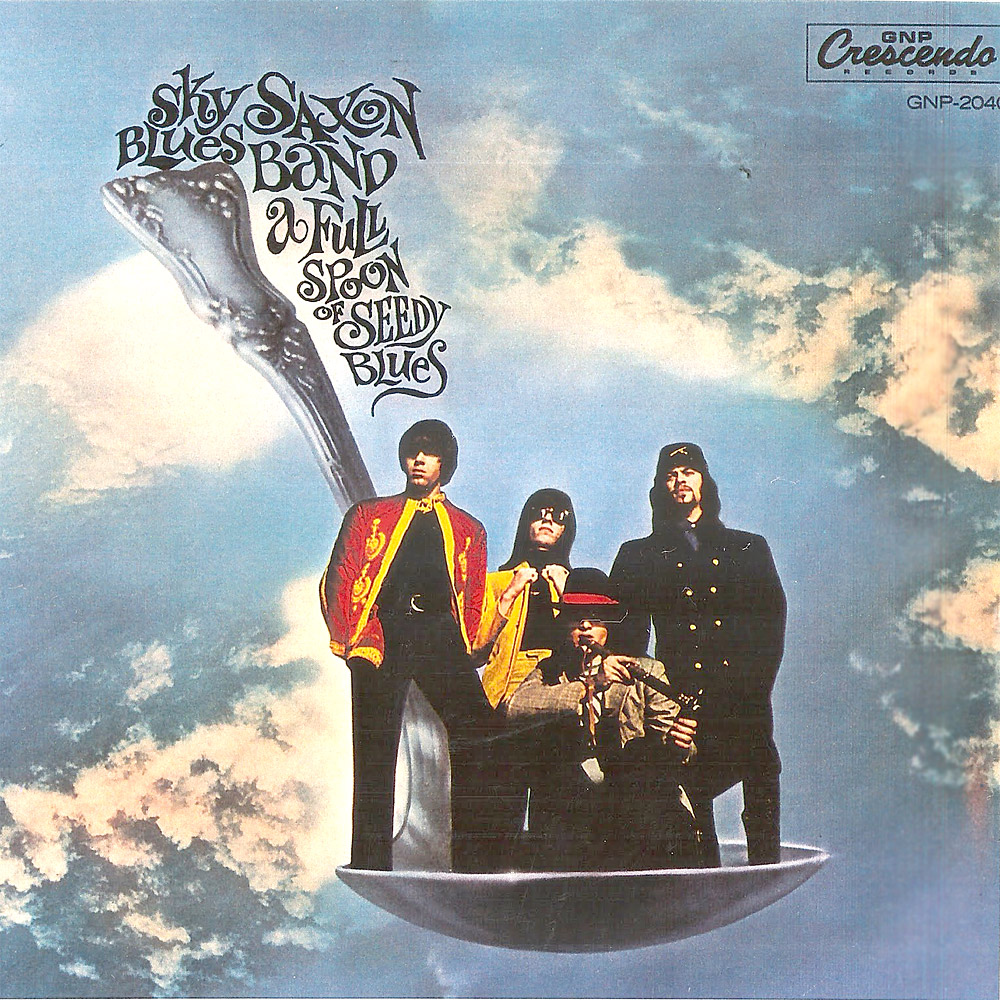
“We played in New York City with Jimi Hendrix for three weeks in an underground club.”
What are some more bands or musicians that The Seeds played shows with over the years?
Oh my gosh. Probably anybody you could name that was an American group and I bet you we played with them. We didn’t play with the English for some reason. We were with William Morris Agency, one of the biggest agencies in the world at the time, and they never seemed to line the Americans up with the English. I don’t know why. We played in New York City with Jimi Hendrix for three weeks in an underground club. At that time, he was up and coming like we were and both had records behind us but not as to where we eventually got, especially Jimi. He was an interesting character. Amazing guitar player, but he was another one. He was so stoned on acid all the time. You try to talk to him and he would just be gibberish. “Look at the colors! Look at this!” You know, he couldn’t… But yeah, I gotta say, he went on stage and it was like somebody turned the lights on. Bingo! He was magic! It’s funny how some people can operate like that, obviously to their demise at the end.
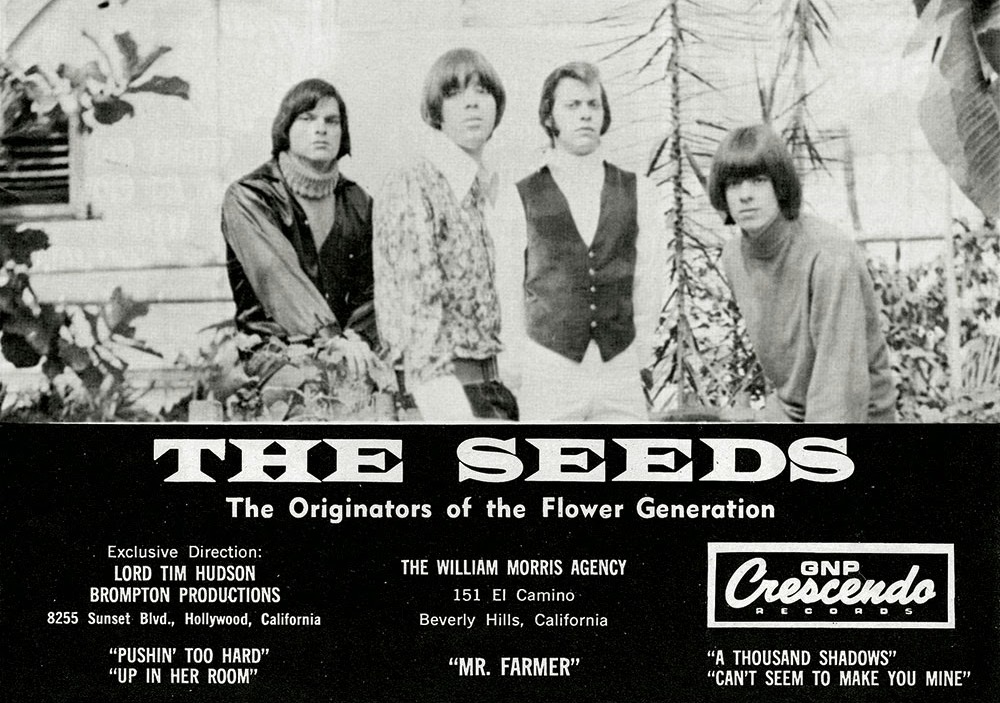
Yeah, especially when they move on to harder drugs like Jimi and Jim Morrison.
Oh yeah. Exactly, right. And like I said, you probably can’t name a group we didn’t play with at some point. We were on a couple of tours with Sonny and Cher. The Beach Boys; we were their opening act they were the headliners, of course. The Byrds, The Jefferson Airplane, we played with them a lot. Like I said, you name some names, I’m probably gonna say “Yeah.”
The Doors opened up for you guys a few times, right?
Yeah, they were our opening act for over six months. Up and down the coast of California and playing college gigs.
What was Jim Morrison like? Was he another drugged-out train-wreck to deal with?
Very much a train-wreck. I did not care for him at all. The group was good and I liked the other fellows but Morrison always had a bad attitude. Drugs were a problem and alcohol was a problem for him. He couldn’t control himself. He would forget the words on stage. Fall off the stage. It wasn’t too good and he was rude to his fans. I didn’t care too much for him. The group was a good group and not to say that Morrison wasn’t a good singer or writer or any of that, but it’s just as a person he was not a good guy, in my opinion.
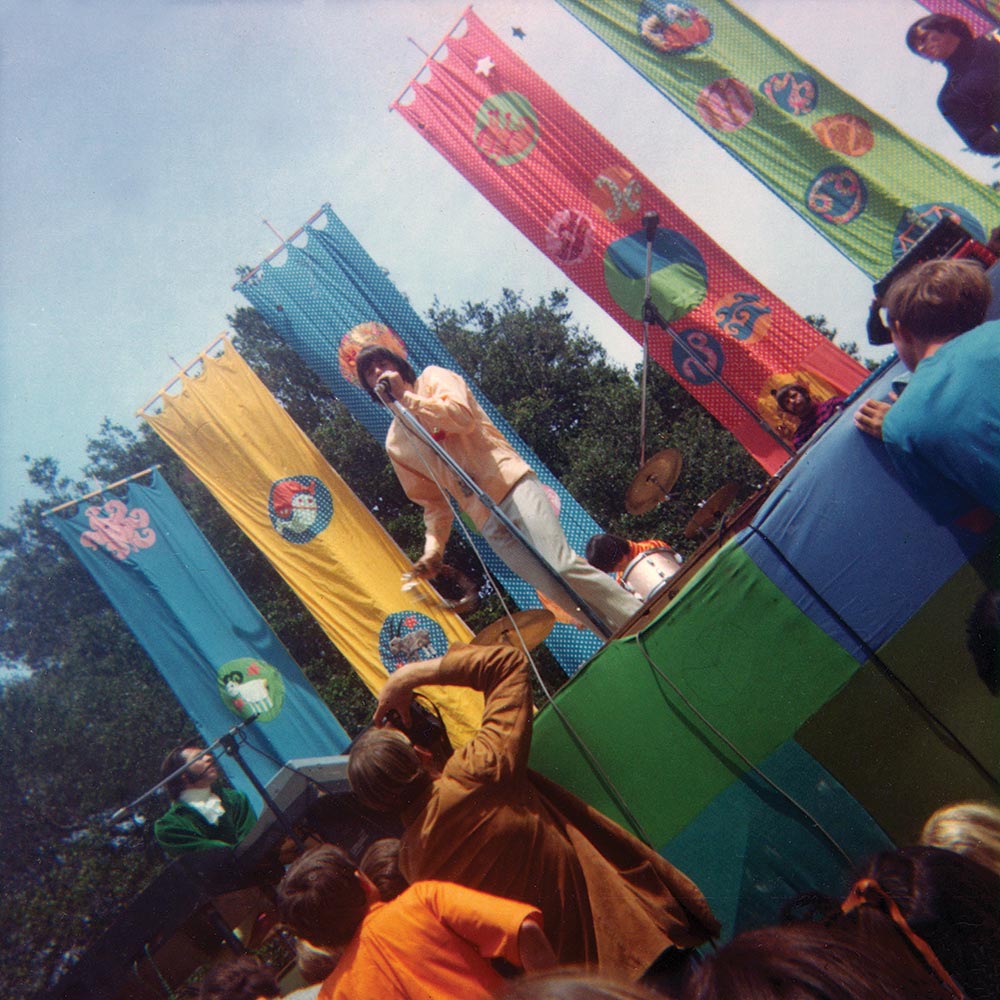
Shifting back to the Seeds, what was Sky like as a person? I mean aside from the drug issues…
Sky as a person was really the type of person who would give you the shirt off his back. And he would always respect the fans and he was always very kind to people. His problem with the drugs wasn’t anything like it affected Morrison.I saw other people become belligerent, but Sky was never that way. His problem was he would just get too involved into something or it would just be too disagreeable and then later on, the drugs affected him so bad it was affecting his voice and his thinking about what a song should sound like. And it became moaning three notes up and down and that was about what he thought was a song. This is late, late, you know, this is about when the group was breaking up and then that’s what he kind of went on to do with some other fellas and tried to keep things going. The drugs really took their toll on Sky but he was a really great guy.
Do you know much about his involvement with the Source Family, Father Yod, and Ya Ho Wha 13?
No, I don’t know. That was after the group broke up.
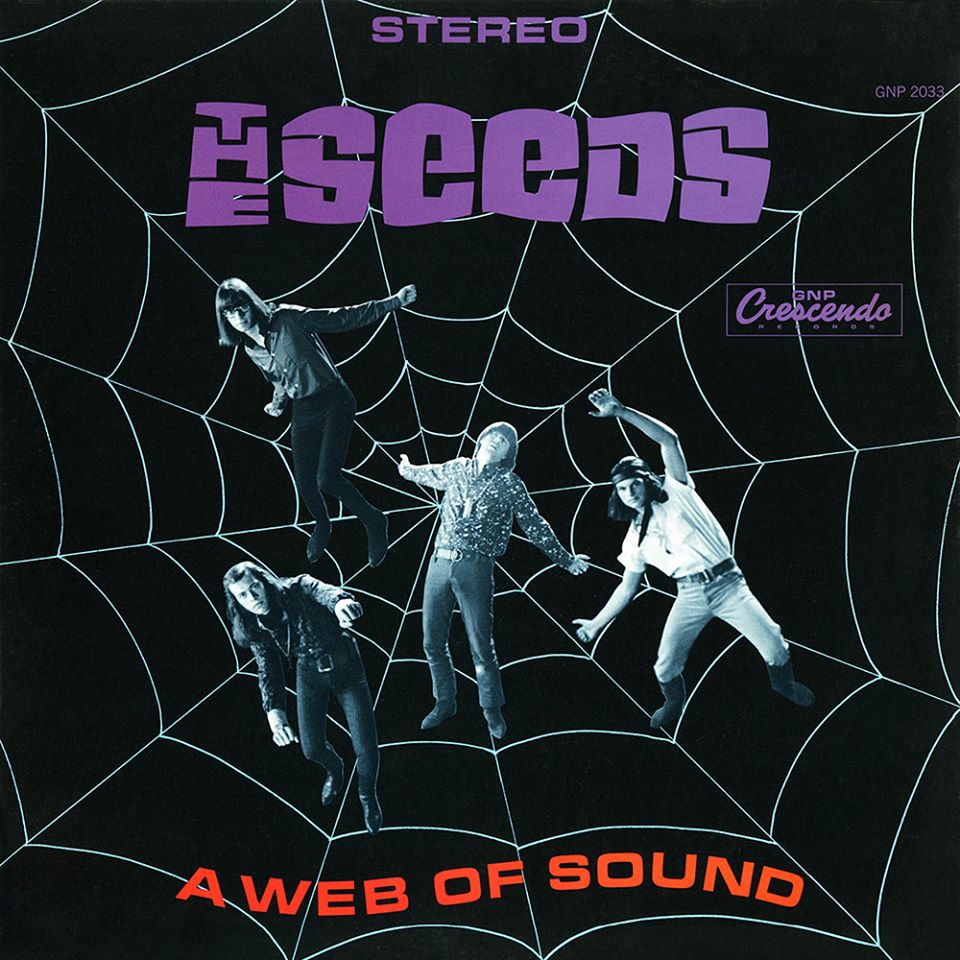
“Sky wrote the words but I wrote all the music.”
Hopefully, the documentary has some info on that… There are some great songs on A Web of Sound, including “Up in Her Room” and “Mr. Farmer”. Do you remember much about how these songs were written? Did you write or arrange either of these?
I wrote all of “Mr. Farmer”. Sky wrote the words but I wrote all the music. In fact, I had come up with the whole song musically before I even brought it to Sky. I woke up in the middle of the night, three o’clock in the morning or something, and that tune was in my head. I actually got up and put it onto a reel-to-reel tape recorder in my bedroom and brought it to Sky the next day and he wrote the words to it. So, I’m very proud of that song. I think it’s good all around – lyrics and music and whatever else. And it did really well…
Apparently, “Mr. Farmer” was banned in a few countries?
Well, it wasn’t banned in countries but it was banned in some states in the United States, and this is the difference of the era right? Now, of course, marijuana is legal a lot of places but it was like the evil thing and they thought “Mr. Farmer” was growing pot. Well, whether he was or he wasn’t, it doesn’t come right out and tell you that. It’s all in your imagination. He could have been growing tomatoes. It doesn’t say. But how up tight the older generation at that time was and trying to clamp down on the youth, you know, and so in some places, yeah, it actually got banned and they wouldn’t play it. Which was crazy, you know, but it overcame anyway…
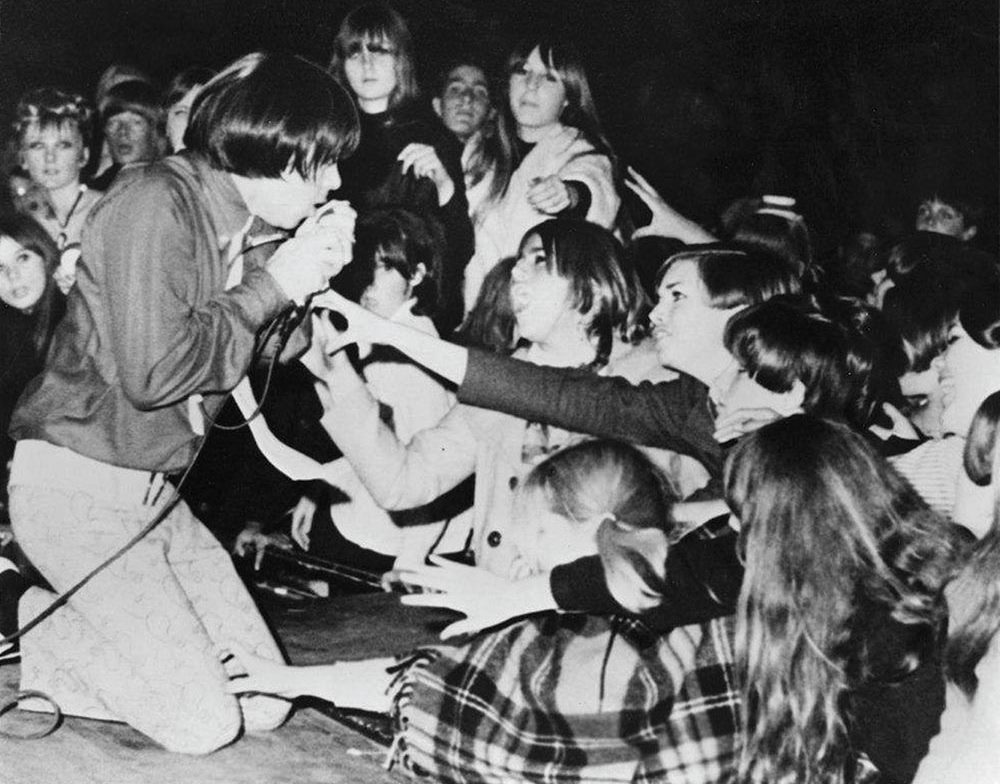
How about “Up in Her Room?”
“Up in Her Room” was kind of a jam song that we would start to do at the end of shows and it turned into something. That’s the one that’s on the record as 14 minutes long or something like that. It’s really, really long. Because it’s a jam sort of thing it just kind of keeps going. We still play that song today along with our hits, of course. We’re reproducing the music as good if not better than in the day. You know, Paul, our lead singer is fantastic and I can’t speak enough for the whole group as a whole. It’s really tight and you’d really enjoy it if you ever get to see us play again. Anyway, so “Up in Her Room”, like I said, we played one of the memorable ones in Hawaii and that was our ending song and, of course, Hawaii being big with the flowers and the leis and we were all about the Flower Power thing and all of that at that particular era and Sky had some leis on or something. He took these off and threw it towards the audience. We were on a big high stage in a big domed auditorium thing and there were a couple of cops at the front of the stage. One of the leis landed on a cop and that was the last we saw of him. All the girls in the front row just jumped on the cop and smooshed him to the ground. We never did know if he got hurt or what happened. You never saw him again. Pretty wild times! That song would literally drive the audience into a frenzy. It was fun, and it still does it to this day, which is amazing. But it really does. It’s a great live song. You’d even say it really got better than the recording because you can only do so much in a recording. That feel of the audience feeding back to the musicians is something else that just can’t really be captured in the studio. So, that’s the story on that one.
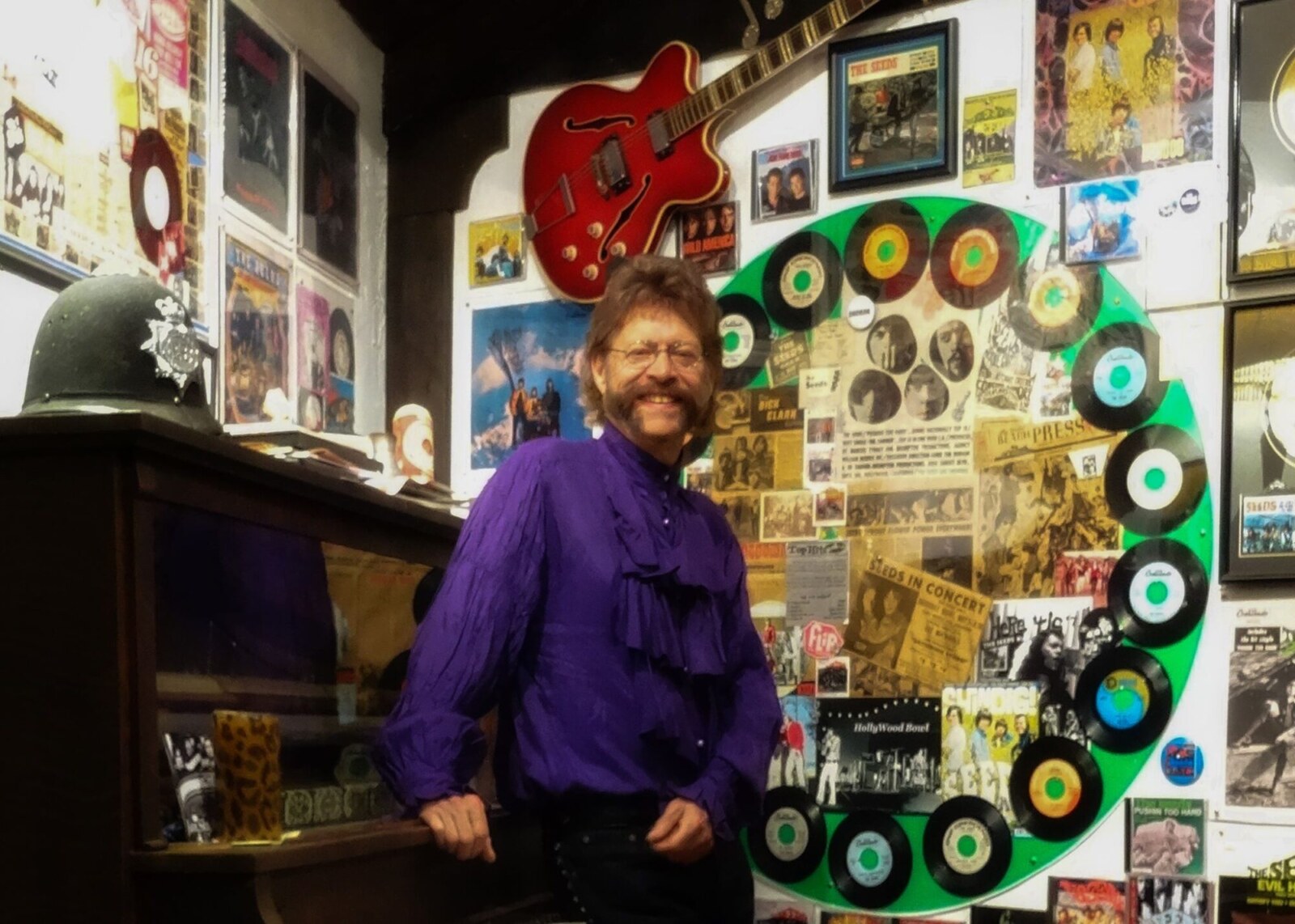
So, you mentioned Muddy Waters earlier. I have a quote here, he said, “The Seeds… America’s own Rolling Stones.” What do you think of that quote?
I was amazed he said that. Like I said, we got along really well. It was one of my, I must say, memorable parts of playing music in life and recording. Especially that I got to meet him and just sit down and talk to him and he was such a down to earth guy. You know? He was really great and super talented. I’m not surprised he said it, we got along so well, even as musicians too which was very exciting. We used his lead guitar player, Luther Johnson, and he played on a couple of our tunes and also wrote one of the songs on the album too, I believe. All I can say is that it was a really great experience.
The Seeds appeared in the psychedelic film, Psych-Out. How did that go?
Yeah, we played ourselves, The Seeds, but we didn’t have a speaking part. We were supposed to be a group doing a mock funeral with a bunch of hippies and they’re carrying a casket and we’re marching along behind them playing our instruments, you know, and whatever. I think we played “Two Fingers Pointing on You” which is on our Future album. That was a fun experience too. That’s the early days of Jack Nicholson and he was a super nice guy. I met an awful lot of nice people in the industry. Every once in a while, there’d be some snobby type person or aloof type person but for the most part, a lot of those people are really, really nice.
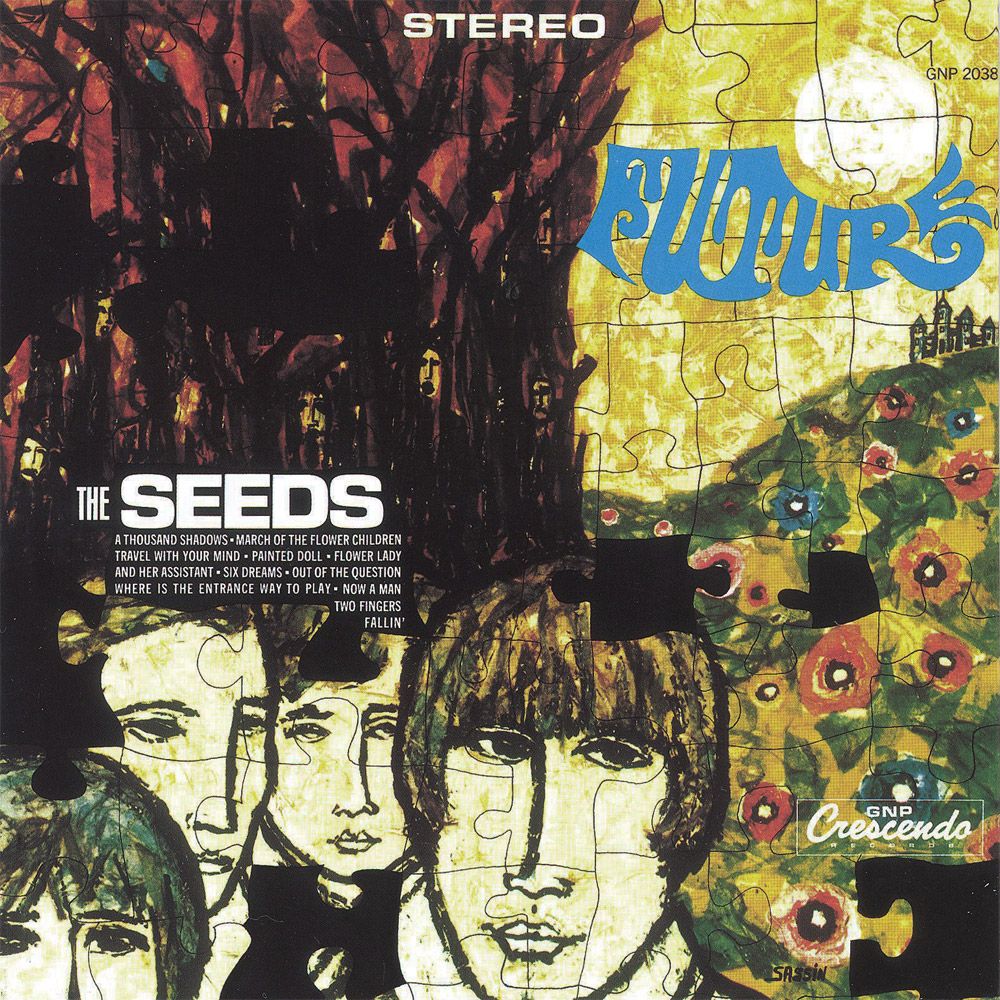
Over the whole history of The Seeds, what are some of the most memorable moments for you?
Oh goodness. There’s really so many and they all get jumbled together what happened when. Playing with Sonny and Cher on a tour and stuff was really amazing, you know, big showtime Stuff. Sonny was an amazingly down to earth guy you could sit and talk cars with him or something. Just friendly, and Cher at that time was so funny and she was shy. It’s hard to imagine now, but she’s turned into a fabulous actress and everything else out there. But those days she was very shy and just go,“Oh, yeah. Thank you.” and zoom off to her dressing room.
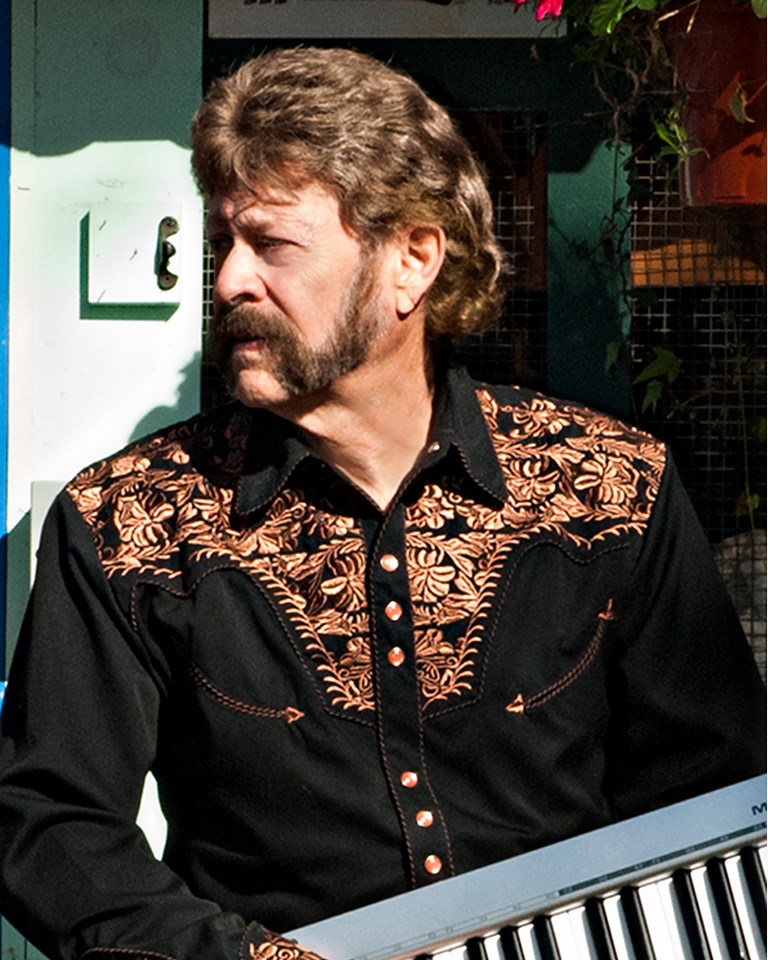
Very cool.
I can tell you a quick little story – a scary one. We were playing through the East and the tour ended up in Montreal, Canada and I remember ? and the Mysterians was a group that was on that tour and they had their big hit record at that time so, I think they were actually leading the tour. But there was a tour manager from William Morris Agency in charge of keeping all bands together and again, all the musicians were on a bus and all the equipment for the bands was in a truck. We played this last gig at this club in Montreal, Canada and at the time all the clubs, club ownerships, and radio stations, and entertainment had a heavy mafia influence and they owned this club. Anyway, long story short, the truck with the instruments broke down but the musicians got to the club and we had no instruments. The kids are all out there, you know, stomping their feet for the music blah, blah, blah, you know and the William Morris Agency guy, they had him in the back room of this club with a gun pointed to his head, saying, “if you don’t get these musicians on stage, guess what?” I mean talk about craziness! And we got wind of this and just in the nick of time, all the other guests heard and left. We were the only group there left. The truck finally showed up with our equipment. We went on stage and we played the whole night. All of the amount of time that all these other groups were supposed to come on and play. They all split and left and the Seeds played the whole thing. And the people that own the place were now cool even though they missed out on some of the other groups but we put on a great enough show for them that they were super happy.Nobody complained. Nobody wanted their money back. It all worked out really cool. At the end of the whole thing, picture this, the club’s closed down, everybody’s gone home. Here’s the janitor sweeping up. We’re trying to gather our equipment, blah, blah, blah. This is the end of the tour. So, now we have no bus to go back. We had a motel and we had a visa. The visa was running out the next day. So, now all of a sudden… and we didn’t get paid because it was all collected by William Morris. You got paid later. We didn’t have the money. So, he should have been able to give us enough to get by right then and there but he’s split, by the way. Nobody’s there. So, we have no money except what we pooled together, you know, 20 bucks between the whole band. And there were wives there at the time too. So, we had to keep going for three days illegally because now our visa had run out and we’re going to Western Union because in those days, it was the only way to get money. You had to “wire” money. There was no ATM machine. Yeah. Anyway, we finally got it straightened out, got home, and was glad to get home but it was a hell of an experience. Like I said, it was something out of almost a fantasy happening in front of your face from a movie. It was great.
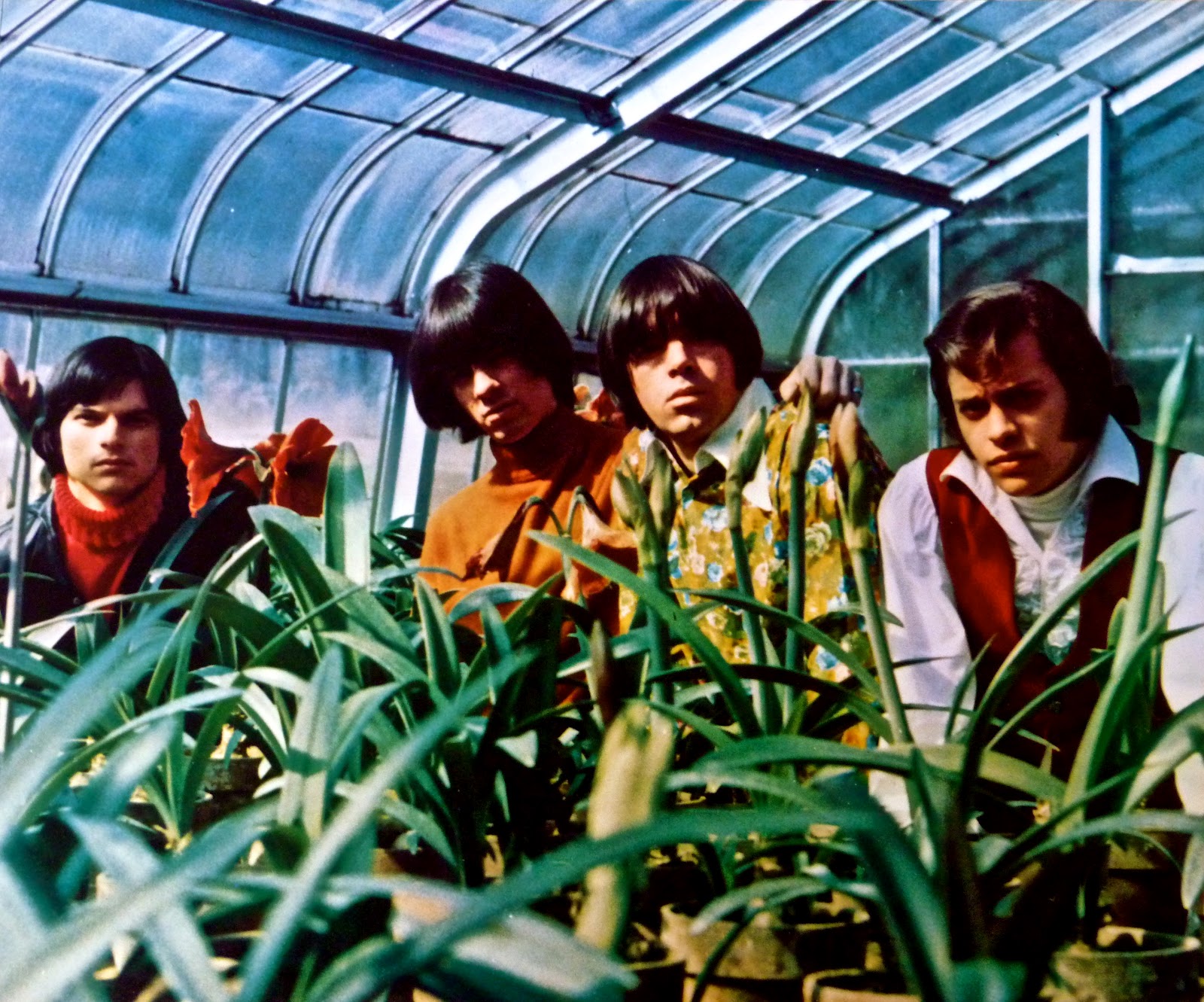
Sounds like the Seeds saved the day! That could have been a bad situation.
[haha] Yeah, really, really bad!
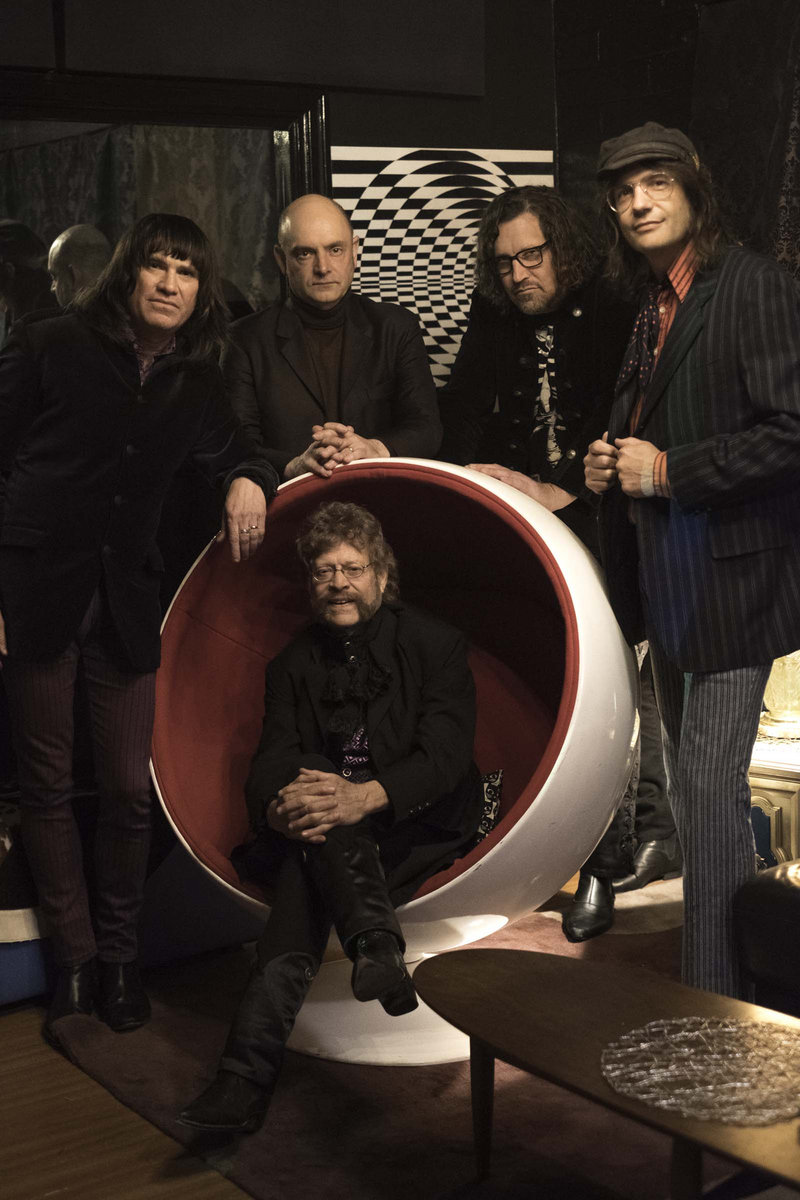
Is there any unreleased Seeds material that might surface one day?
That’s a possibility. There’s one in the can that would need work. We’ve talked about it. It’s hard to say whether it’ll happen or not. We do have two new recordings from the new group here. Alec wrote the songs and I’ve put my stuff to it keyboard-wise and we’re going to release one soon. It’ll be on the internet, you’ll be able to pick up on it there. Whatever. We’re saving one that we also have, it’s called “the Vampire.” We may do a video around it and we are saving that for maybe next year. We’ll see what happens. But the other one, really good song, it’s a slower song but I think you’ll like it. It’s in the same era. I mean, you will think this is a 60s song. The group, our hearts are still there musically. We could do other stuff, but we don’t want to. Leave that to somebody else.
New song by The Seeds:
Can’t wait to hear them! Well Darryl, I think we’ve gotten through all the questions that we had for you. Is there any last message you’d like to send to readers of Psychedelic Baby Magazine?
I’d like to say that one of the last shows we did in April of last year, we played in the UK. We played in London and the fans were a wonderful turnout. It was so heartwarming. I signed hundreds and hundreds of autographs. The people were just so good and I think we’re even more popular there in the UK than in the United States. So, it was very heartwarming and a tremendous show and I had such a great time and I would just like to thank the people in the UK. We did a radio show from the BBC and that was exciting and fun. The same studio the Beatles did a weekly show from and the vibes in the studio were amazing, you know? If I’m going to end the note and say, you know, if the pandemic is here forever and musicians don’t play anymore and we’re going back to virtual reality, I probably won’t do that and I don’t know. At least I ended on a really high note if that’s where it goes. I hope not, but you hear what I’m saying. We will see what next year brings. Like I said, we do have a couple things in the can. I hope people enjoy it. I hope we get to make a video. We got some great ideas for a really fun video!
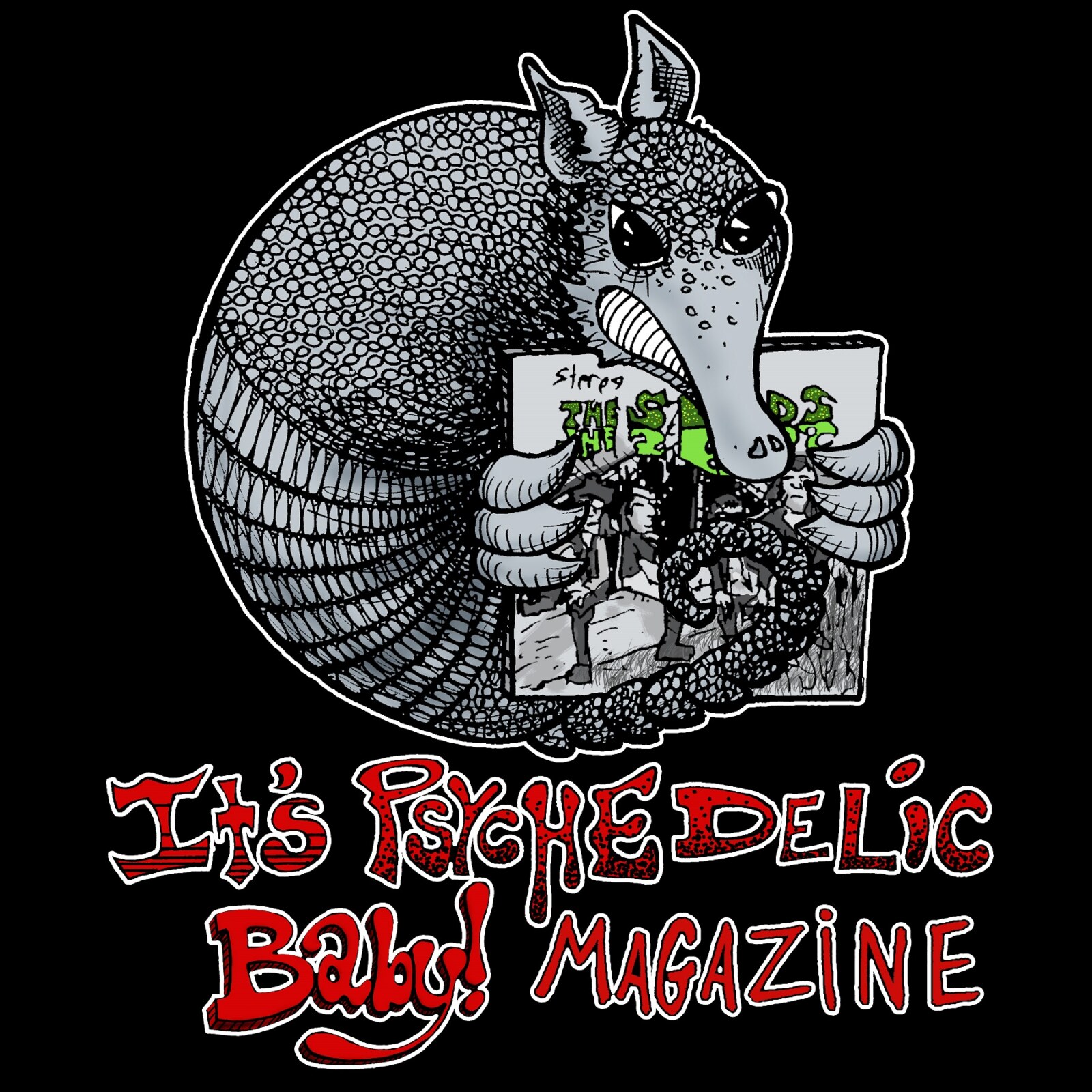
Sounds awesome! Thanks so much Daryl! Hope to catch you on the road if the world ever opens back up.
Written and Illustrated by
Justin Jackley
August 2020
www.justinjackley.com
RIP Buck “Jan Savage” Reeder (October 23, 1942 – August 5, 2020), the original guitarist of The Seeds. More about Jan Savage here.
The Seeds Official Website
The Seeds Facebook
The Seeds Bandcamp
All photo materials are copyrighted by their respective copyright owners, and are subject to use for INFORMATIONAL PURPOSES ONLY!


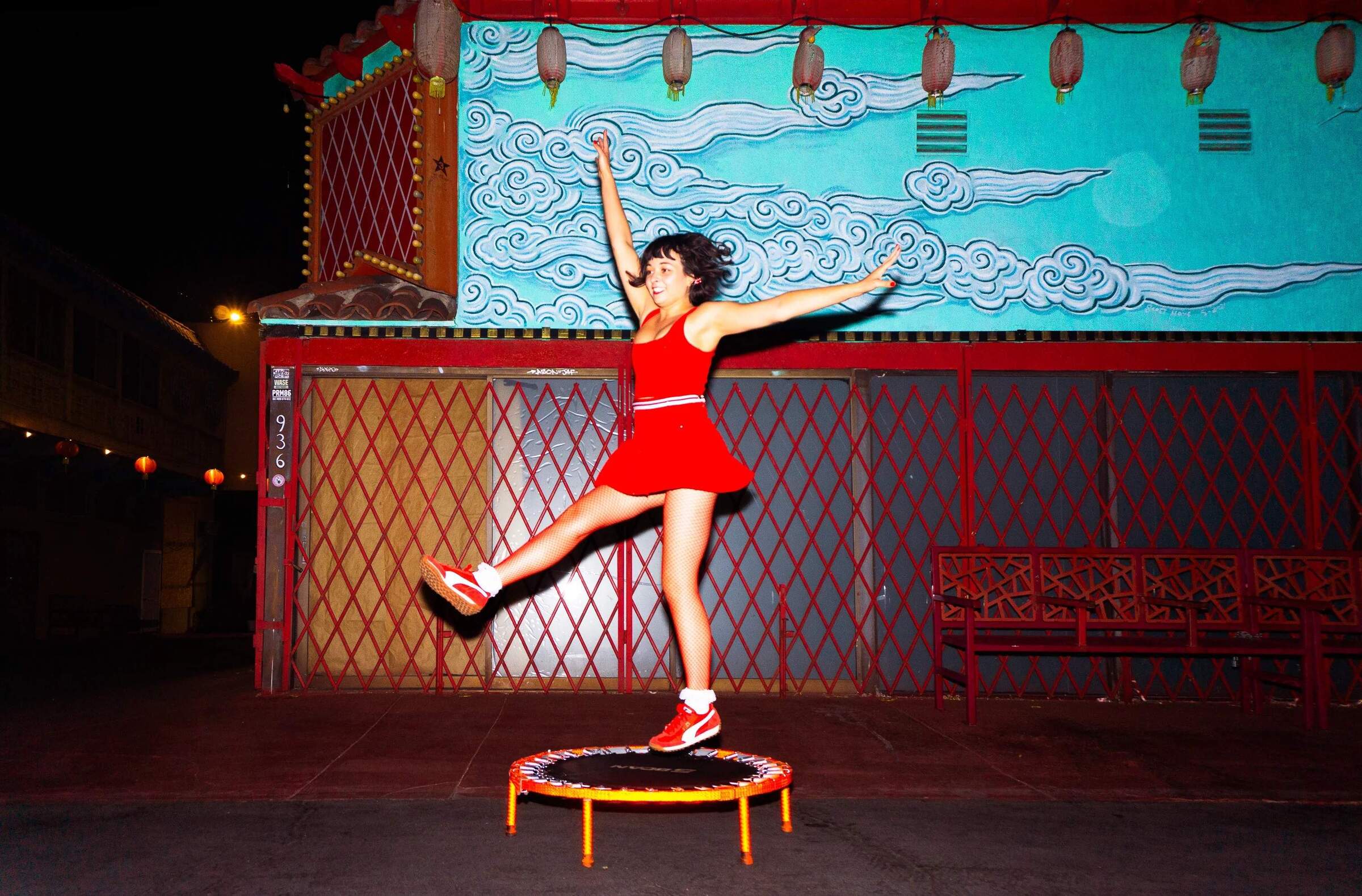
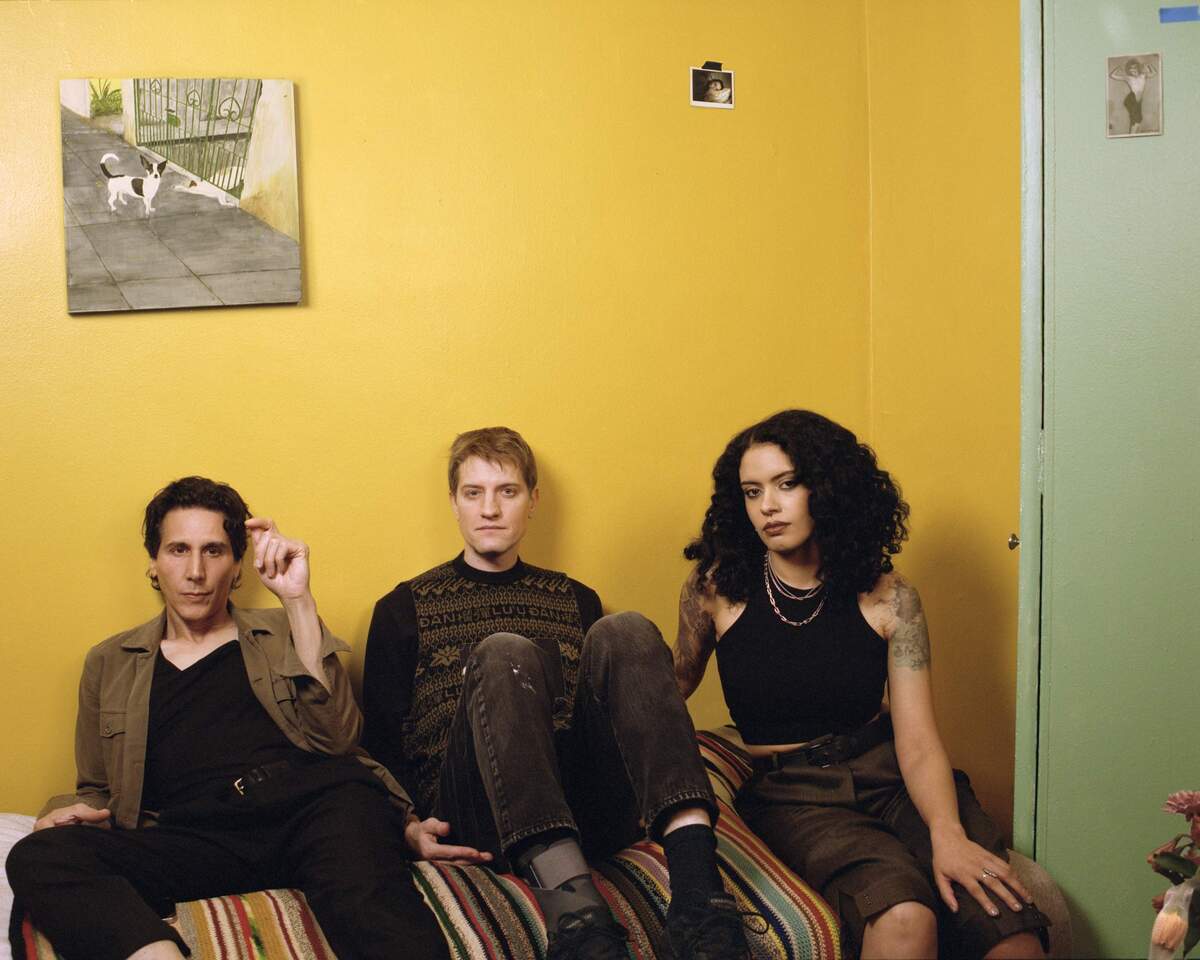
It’s great that a notable group like The Seeds gets the interview treatment here. Nice interview, good questions and Hooper’s reminiscences particularly those of Jimi Hendrix and Jim Morrison are compelling. The new song’s good. Looking forward to more legends being featured here.
Was at the Montreal gig, the only time I witnessed the live Seeds. They closed the night with a wonderful set, a bit different than the first album and much more like Web of Sound. The review the next day wrote that half the audience loved the band, the other half were confused. Remember, this was when Pushin’ Too Hard was just climbing the charts. The band wore the unis from the Spoonful album. The band was considered “underground” and mysterious. My mind was blown and the Seeds became my numero uno band forever.
grew up in west kansas, always a fan of the seeds. I moved to socal in late 68. I never got to see them. Just read the Hooper and Savage articles. Ironically “faded picture” came on the server.
I loved reading this about The Seeds. I was a huge fan. I used to The Seeds at the Pasadena Playhouse, but in the area where you could dance. Wow, wonderful memories. I believe I have all of your albums. Daryl, how do I find out when you will be playing in the Los Angeles area?
Hello my name is Melanie I’m trying to get a hold of Daryl Hopper if he’s still alive back in 19 68 I came to woodland hills California to see my friend Janice Garrett who had married somebody who was associated with your band maybe not a player but someone that helped with lighting or something I think his name might have been Gary but what I’m getting at is they had a friend and all I know is his name was Chip well I did a one night stand and ended up pregnant with him and here it is 50 some years later and he has a son and I wanted him to know that if there is any way you guys could know who I’m talking about anyway thank you and God bless you guys